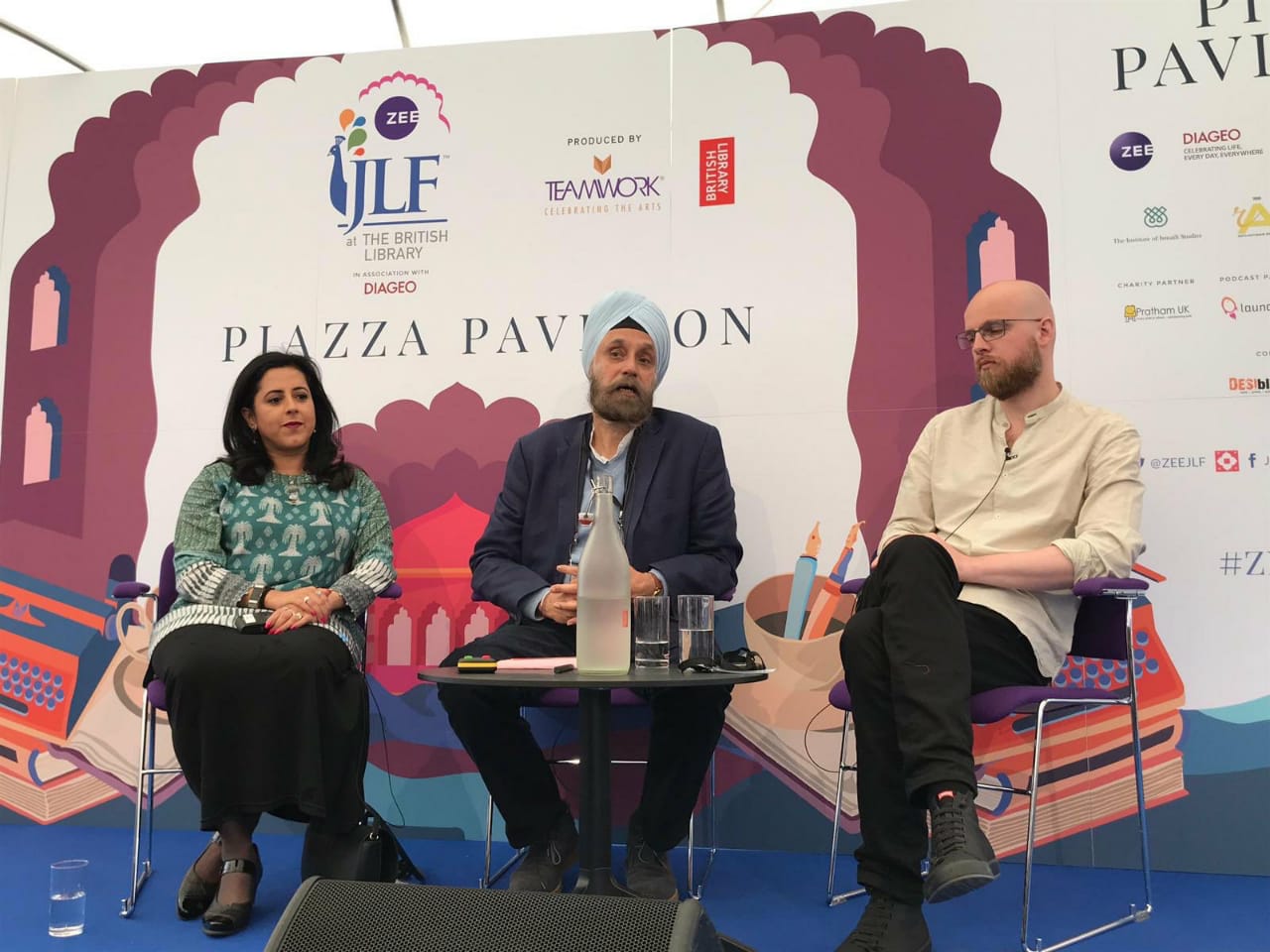


ZEE JLF at The British Library Saturday 15 Session 19: Amritsar and the Patient Assassin Anita Anand, Kim A. Wagner chaired by Navtej Sarna
As Navtej Sarna noted in his introduction, the centenary this year of the Amritsar Massacre has spread such awareness of this event that we need no longer assume that it is only remembered in India. His brief summary described how, on 13 April 1919, British troops fired on a peaceful gathering of around 20000 Indian celebrants in the public garden, Jallianwala Bagh, killing an estimated 600 and injuring many more. It has become an iconic event, resonating in the Indian psyche while directing the path of history. It invigorated the Indian freedom movement and ultimately, 20 years later, brought about the assassination of Sir Michael O'Dwyer, former Lieutenant-Governor of Punjab, in the heart of Westminster at the hands of Sardar Udham Singh.
Challenged by Sarna as to his motivation in writing his book Amristar 1919, Kim A. Wagner cited an awareness of how poorly this event is understood. It is exclusively seen as a catalyst to Indian independence: 1919 overlaid with a thick layer of nationalist awareness and a cast comprised solely of heroes, martyrs and villains. Wagner spoke of a more complex set of circumstances that need deeper and considered analysis if we are to understand them fully. In his mind, this demonstrates how desperately we need a language for critical debate around Empire and the legacy of Colonisation.
Anita Anand drew murmurs from the audience with the revelation that her grandfather was in the gardens with friends that day in 1919 – a fact of family history that had perviously made her feel she could not have sufficient emotional distance to write about the massacre dispassionately. Her grandfather left minutes before the shooting started and returned to find his friends amongst the dead. In writing and researching The Patient Assassin, her journey was one in which by telling the story of Udham Singh she was also able to tell her family story.
Anand set out the bare bones of what we know about Udham Singh. A young man of lower caste and with no family, he was in the gardens on 13 April 1919, just as her grandfather was. His story is one she sees as forming a ‘template’ for radicalisation as true today as it was then. Surviving the massacre, he vows revenge on those who caused it and spends 20 years moulding himself into the archetypal avenging angel.
Fascinating as these facts are, it is what history makes of them as evidenced by the manoeuvres and machinations of politicians and powerbrokers afterwards that form a compelling portrait of early 20th century World history. Gandhi takes some time to lose faith with the British after Amritsar, only returning his war medals in 1920. In Westminster, there is considerable debate culminating in Churchill’s rejection, in order to maintain, as Anand sees it, moral high ground for the Empire. Udham Singh’s assassination of O’Dwyer is seized upon as propaganda by Nazi Germany, while Udham Singh himself was hanged and buried in Pentonville Prison. Denied at first by Gandhi and Nehru as a madman, it was not until 1974 that his remains were repatriated to India and his evolution to legend ensured.



Leave a comment